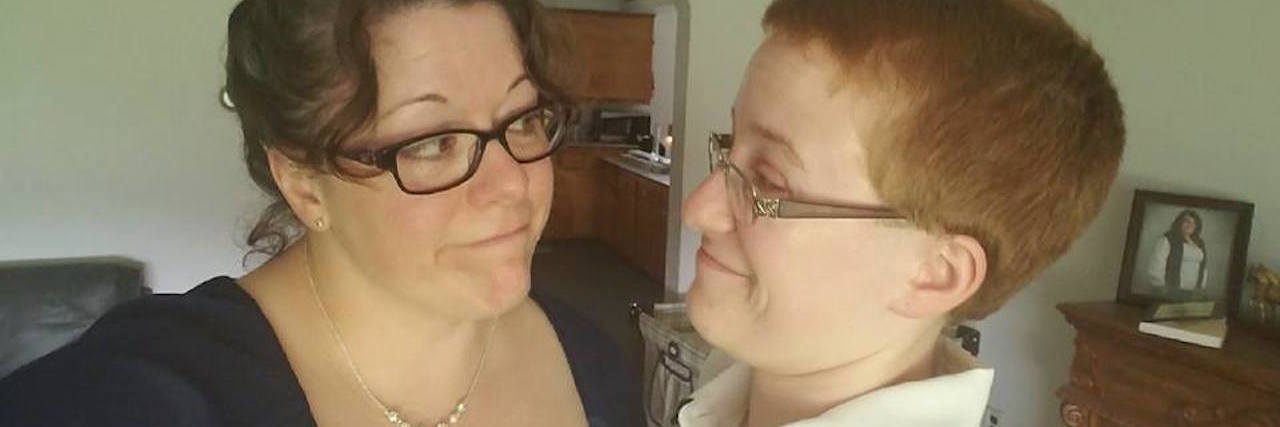10 Ways to Support a Loved One Recovering From PTSD
Post-traumatic stress disorder (PTSD) can be rather complex; the road to recovery is often lengthy and filled with bumps and turns. Symptoms may even interfere with one’s social life, often affecting work and relationships. I thought for a while about my experiences with PTSD and my relationships; and eventually, I comprised a list of tips I thought might be valuable to people who love someone recovering from PTSD.
1. Educate
Take the time to learn what post-traumatic stress disorder is. What are your loved one’s triggers and symptoms? By educating yourself, you are taking initiative to understand how PTSD affects their daily life. I am thankful enough to have a partner who knows about PTSD, making it easy to talk with them about the ramblings in my head. Some, however, are not so lucky. Educating yourself can help show them you care.
2. Presence
Sometimes, post-traumatic stress disorder creates a sense of isolation. It rears its head, even when all we want is comfort. Your presence can mean the world to someone struggling with PTSD. I did not realize how lonely I felt until I was receiving treatment in a psychiatric hospital, where I knew nobody. When my family and partner visited me, I did not feel alone in my struggle.
3. Resist the Grit
When times are tough, people are often told to “grin and bear it.” We do not tell someone with a broken leg to walk it off because it’s only a broken bone. We give them time to recover. The same should be done for someone with post-traumatic stress disorder. Recovering from trauma(s) can take time and, as their loved one, avoiding phrases like “try harder” or “it could be worse” can help in the long run.
4. Validation
Empathy and validation are important in anyone’s recovery process. Letting your loved one know that it is OK to feel what they are feeling or that their experiences are valid can make or break someone’s recovery. When we are validated in our experiences and emotions, we are often more likely to open up.
5. Communication
Like any relationship, communication is significant. Communicating with your loved one about any concerns, questions or thoughts you may have lets them know you care for their well-being. Let us not forget that this often intertwines with presence and validation.
6. Don’t Try to Fix Them
When I was a child, I broke one of my sister’s toys. To keep her from telling on me, I tried to fix it with tape. That did not work well enough and I still got in trouble. People with Post-traumatic Stress Disorder are not broken items; they are people recovering from traumatic events. Like that toy, you cannot fix them with tape and think it will hold. So, remember: it is not your job to fix us and you can’t.
7. Patience Is a Virtue
There are good days where I have plenty of energy, but I still have bad days. Days where I just want to lay in bed, watching Netflix and scrolling through Facebook. Loving someone with PTSD, like with other people, comes with highs and lows. We know those “low” days probably suck, so being a little patient with us will make those days a tad better.
8. Encouragement
Like any other relationship, encouragement is important. Support us on our quest to find the therapy that helps us most or in our search for the right meds. Encourage us to get back out there! For the longest time, I felt like I had no encouragement. My partner, however, has cheered me on and often inspired me in my recovery thus far.
9. Be Open-Minded
Life is a constant cycle of twists and turns; you cannot always plot the course of the road ahead. Any sort of relationship will wind and loving someone with post-traumatic stress disorder is no exception. Loving someone with a few more obstacles in their path is OK and completely valid. Most importantly, being open-minded in their healing can make the process for them easier.
10. My PTSD Is Not Their PTSD
Recognize that my PTSD is not the same as another person’s. There may be similarities, but there are often differences. My trauma, triggers, symptoms; my experience with post-traumatic stress disorder is different from the next person’s.
Relationships, from platonic to romantic to familial, are not easy; they require work and effort. Loving someone with PTSD is no exception. We are all on different journeys, facing different hurdles in life. Having loving people present can make the path to healing a bit more manageable.
Lead image via contributor

